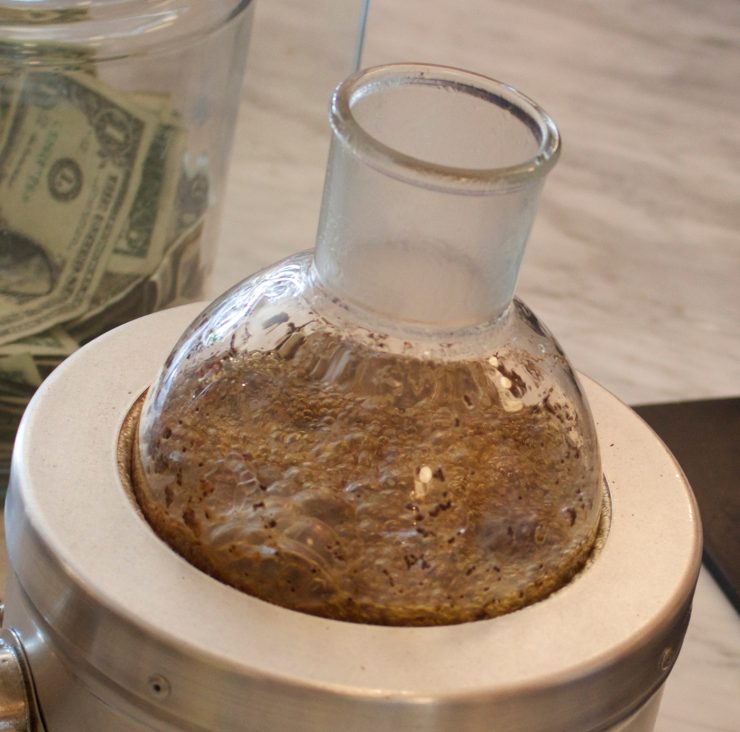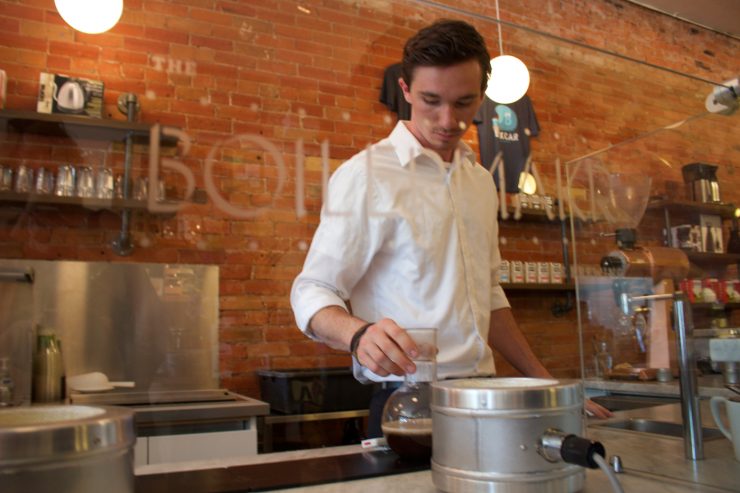Boxcar Coffee Roasters, a Colorado company with shops in Boulder and Denver, has a curious way of making coffee. Earlier this year I visited the tiny public market that houses Boxcar’s coffee bar in Boulder, which is complemented by a thoughtful selection of artisanal baked goods and cured meats. It’s a paradisiacal reprieve from the rest of Pearl Street, the theme-park-like center of the small college city. Thanks to the altitudinously gifted nature of the locale, at Boxcar you’ll see a brewing method that would be absolutely verboten in most places: boiling coffee. In other words, it’s high, so they can boil the hell out of their coffee to great results.
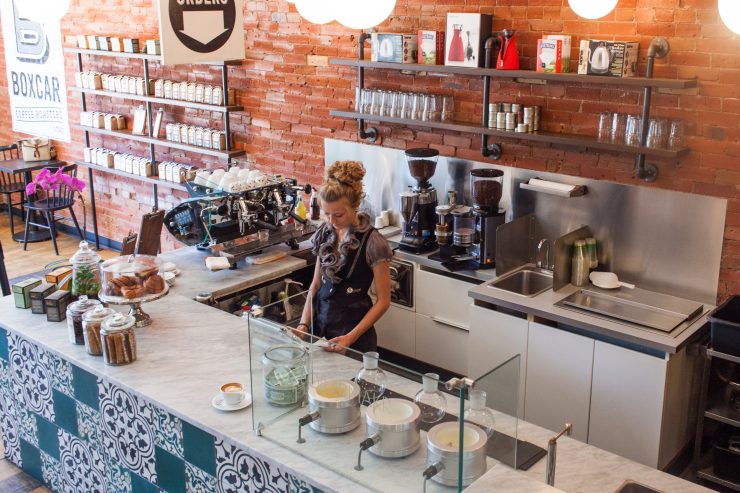
Courtesy of Boxcar / Jarrod Renaud
I managed to corner Ben Thomas, Director of Operations at Boxcar to discuss what they call “The Boilermakr.” For those who know, a Boilermaker is a classic cocktail and/or somebody who makes steel plates. In this case, “The Boilermakr” applies to the process of making coffee, and the person doing the, uh, boilermakring. Ben Thomas says, “The Boilermakr is a process born form the fire, literally. Often we tell people it is a dressed-up version of cowboy coffee.”
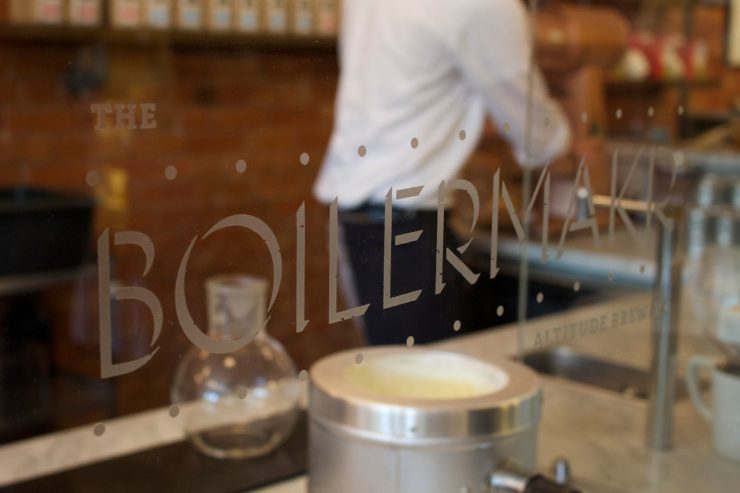
The difference is that in Boulder and Denver where Boxcar Coffee Roasters has locations, the 5,280+ feet of elevation lowers the atmospheric pressure enough to lower the boiling point by around 10 degrees Fahrenheit. Since it’s generally agreed that 202 degrees Fahrenheit is an excellent temperature for brewing coffee, this means that at a mile high you can boil your coffee without fear.
Thomas says, “The idea was conceived while camping in the beautiful Colorado Rocky Mountains. While it may seem to be a crude environment for coffee brewing, some amazing results were achieved over those fires. From there we set out looking for ways to recreate that experience in a café.”
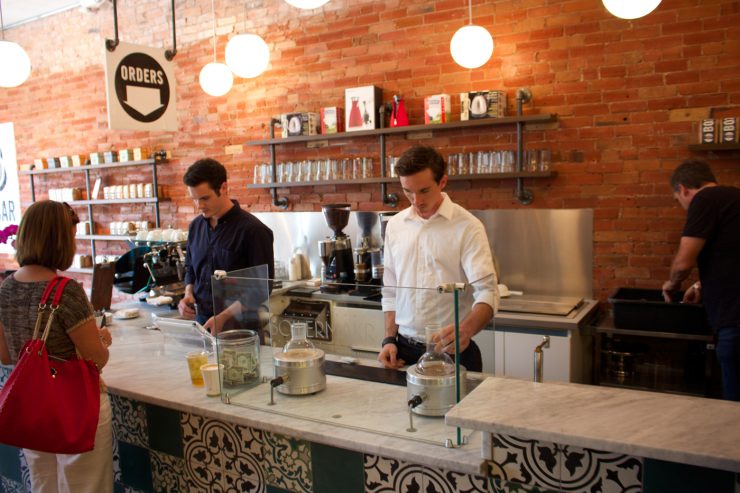
This is how the process happens according to Thomas:
- We start with grinding the coffee directly into the flask.
- Next, the freshly ground coffee gets introduced to a preset dose of hot water and the brewing begins.
- After a short “bloom” we place the flask into the heating mantle where the temperature curve starts to climb.
- What happens next may cause the caring coffee person to cry at first glance, but it is intentional I promise. We boil our coffee. At our elevation in Denver and Boulder, our water starts to boil at around 202 degrees Fahrenheit. We use that limitation to our advantage by getting our water hot enough to achieve the desired extraction.
- After a few seconds at 202, we pull the flask off the heat source and drop in a set amount of ice. The addition of the ice serves a couple purposes. First, the ice drops the temp of the brew so we can keep the extraction from going too far. Second, it serves to “clean” the finished cup: as the ice melts, the cold water (which is more dense than the hot water) gets soaked up by the hot grounds causing them to settle more quickly to the bottom of the flask.
- We pour [the brewed coffee] through a strainer just to ensure none of the larger particles end up in the cup.
- The end result is a wonderfully full-bodied cup with a delightful depth of flavor.
And that’s how Boxcar makes coffee a mile above sea level. You might be wondering what happens to espresso at the higher elevation and lower pressure. Thomas says, “We can’t expect the same style of espresso here, as we would at a café at sea level. One example is the crema. With fresh coffee and no pre-infusion the crema acts not too dissimilar to a mouth full of Pop Rocks .
.
“It is exciting at first but in an instant it’s all gone and you are left feeling a little strange as to what just happened.”
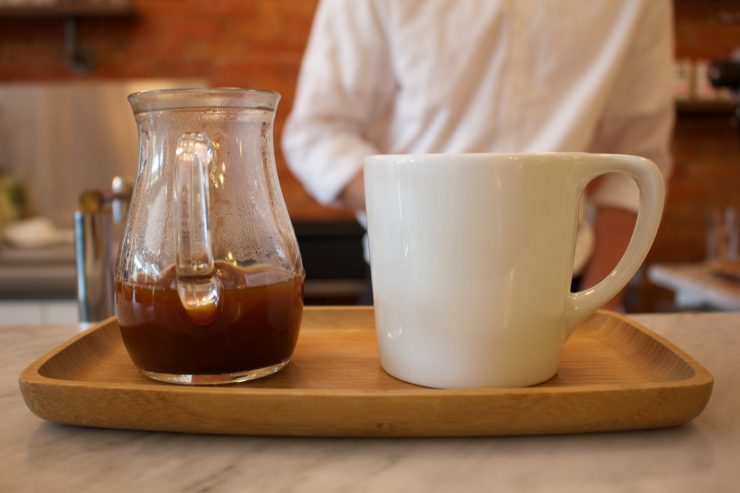
So, if you’re on the front range of the Rockies in the neighborhood of Boxcar Coffee Roasters in Denver or Boulder, stop by and get a shot or a Boilermakr coffee. You might feel light headed, dehydrated, short of breath, and a little strange, but you can believe your taste buds: that boiled coffee tastes fine, just fine.
Leif Haven is a Sprudge.com staff writer based in Oakland. Read more Leif Haven on Sprudge.


